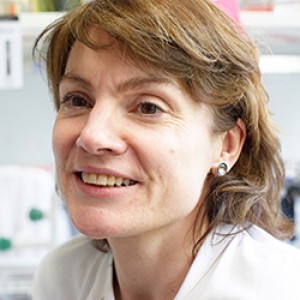Professor Hannah Mitchison

Professor of Molecular Medicine
University College London
 United Kingdom
United Kingdomh.mitchison@ucl.ac.uk
profiles.ucl.ac.uk/4474-hannah-mitchison
Research Interests
Genetics, Ciliopathies, Therapies, Primary ciliary dyskinesia, Rare disease
Hannah Mitchison is Professor of Molecular Medicine at University College London. She has investigated the genetic basis of rare diseases at the UCL Great Ormond Street Institute of Child since 2008, where she is Head of the Genetics and Genomic Medicine Department. Hannah has authored > 170 journal articles using human genetics, cell biology and functional studies to better diagnose and understand the molecular basis of ciliopathy diseases. Her group are developing RNA-based genetic medicines for these rare disorders, which include primary ciliary dyskinesia. Hannah is a lead in UK Cilia Network, founder of the ‘CILIA’ Conference series and is an MRC National Mouse Genetics Network PI member. She co-chairs the ClinGen Motile Ciliopathy Gene Curation Expert Panel and participates in the BEAT-PCD ERS Clinical Research Collaboration, co-chairing a Work Package to develop CiliaVar, the first online database of motile ciliopathy variant information. Her work is highly aligned with patient groups and she serves as Chair of Ciliopathy Alliance and as a science panel member for PCD Support and PCD Research.


